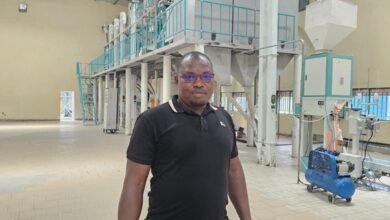Nicolas Poussielgue : “AI is taking an increasingly central place in Africa’s collective consciousness”
Founder of the Dakar Institute of Technology, a leading institution in West Africa specializing in artificial intelligence, Nicolas Poussielgue talks to ANA about the challenges of AI on the continent and the human resources equation.

Why AI in education?
Given the proliferation of artificial intelligence in all areas of modern life, we have taken the initiative to contribute to the training of young people in Africa in the emerging technologies related to artificial intelligence. We believe it is essential to enable people to master these technologies, as they have a significant impact on the way businesses operate, as well as having a major impact on the political sphere. Indeed, AI algorithms are now responsible for recommending content on social networking platforms and influencing opinions and interactions in society. Understanding and mastering AI is therefore crucial for informed participation in today’s world.
Have African countries fully grasped the challenges of AI?
Awareness of the importance of Artificial Intelligence (AI) is increasingly evident, especially since the release of ChatGPT in November 2022, an event that allowed many people to hear about AI for the first time. It’s worth noting that the media, at least in Senegal, hasn’t covered this topic much. However, the launch of ChatGPT has generated particular enthusiasm, especially among young people, who have quickly grasped the importance of AI and are now expressing a strong interest in training in this field. Even among existing IT professionals, there is a growing desire to develop their AI skills to take advantage of the opportunities that are emerging.
At the same time, we are seeing the emergence of numerous AI-focused startups on the African continent, reflecting the growing enthusiasm for this technology. One notable example is ZINDI, a South African platform that offers challenges aimed at solving specific problems on the continent using AI. This initiative reflects the desire to put AI at the service of development and solving concrete challenges in Africa.
Overall, AI is taking an increasingly central place in the collective consciousness in Africa, both among younger generations and established professionals, and this trend seems to be fostering the emergence of smart innovations and solutions to local and global challenges.
What role will human resources have to play in this AI-accelerated digital revolution?
The arrival of artificial intelligence (AI) is causing concern among many people, and it is legitimate to ask whether robots will eventually replace us all. International reports on the impact of AI on employment disagree on the net result in terms of jobs. Some predict job losses, others the creation of new jobs. But one thing is certain: AI will profoundly change the world of work, just as the computer did at the end of the 20th century. Back then, those who didn’t know how to use a computer and clung to their typewriters found themselves retired.
I think we are experiencing a similar situation with AI. To stay relevant in the job market, it’s important to adapt and understand how AI works. Instead of fearing that it will replace us, we should be looking at AI as a tool that can help us work more efficiently and solve complex problems. AI can automate repetitive and tedious tasks, freeing up time for more creative and strategic activities. In short, this is an opportunity to increase our productivity and our value in the labor market, provided we master these new technologies.
Is the regulatory framework adequate?
Significant progress is being made in Senegal to address the challenges posed by artificial intelligence (AI). However, it is important to recognize that the pace at which AI is advancing far outstrips the pace at which these policies are being formulated and implemented. The arrival of ChatGPT, a « generative » type of AI, took many players by surprise. Although generative AI was already known, it was mainly associated with the artistic domain, and its use to generate text was not yet widespread.
The acceleration of AI underlines the importance of remaining flexible and responsive to these technological advances. It is imperative that gaps in regulation and understanding of AI are filled quickly, while fostering collaboration between the public and private sectors to maximize the benefits of this technology while minimizing the potential risks. Adapting quickly to developments in AI will be crucial to seizing the opportunities it offers and addressing the ethical and societal challenges it poses.






